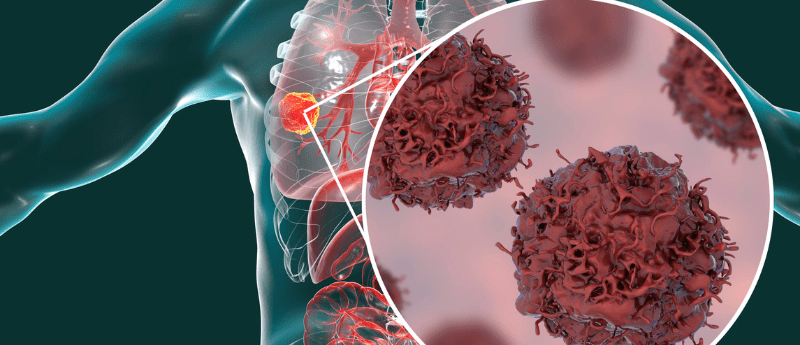National Cancer Institute announces the Pragmatica-Lung Study, a streamlined real-world clinical trial of a combined treatment for advanced lung cancer

A National Cancer Institute press release announces the Pragmatica-Lung Study to evaluate a two-drug combined treatment for advanced lung cancer is beginning to enroll patients. Its simplified, real-world design is intended as a modernized model for future cancer trials.
On 12 April 2023, the National Cancer Institute (NCI), part of the National Institutes of Health (NIH), issued a news release announcing: “Pragmatica-Lung Study, a streamlined model for future cancer clinical trials, begins enrolling patients”. The Pragmatica-Lung Study is one of the first NCI-supported clinical trials to use a pragmatic, simplified design that aims to increase accessibility and be more representative of the real-world patient population. The Phase III randomized trial will enroll up to 700 adult participants from the US by 2025 to evaluate whether a two-drug combination treatment extends survival in people with advanced non-small cell lung cancer (NSCLC), following promising Phase II trial results.
The study development is part of a broader effort by NIH and the US FDA to modernize clinical trials. Pragmatic trials have fewer and simpler eligibility criteria than conventional trials and are designed to evaluate the effectiveness of interventions using real-world data from routine practice conditions. It is hoped that this type of streamlined trial can be less burdensome to patients and investigators, accrue study participants faster, be more representative of the real-world patient population, and serve as a model for future clinical trials.
“This study is designed to eliminate potential barriers to enrollment and provides a model for increasing diversity and enrollment in clinical trials,” said Monica Bertagnolli, Director of NCI. “Pragmatica-Lung, with its critical public and private partnerships, reflects the innovative approaches NCI is taking to achieve the Cancer Moonshot℠ goals, including reducing the cancer death rate by 50% within the next 25 years.”
The two drugs under assessment as combination treatment in the Pragmatica-Lung Study are already FDA approved as individual medications. They are ramucirumab (Cyramza, Eli Lilly & Co), a targeted drug that works by preventing new blood vessels from growing, and pembrolizumab (Keytruda, Merck), an immunotherapy that helps the body’s immune system attack the cancer. A randomized Phase II clinical trial conducted as part of the Lung Cancer Master Protocol, the first lung cancer precision medicine trial supported by NCI, showed preliminary evidence that the combination of ramucirumab plus pembrolizumab extended survival compared with standard treatment in people with advanced NSCLC whose disease had progressed following treatment with chemotherapy and immunotherapy.
NCI collaborators for the Pragmatica-Lung Study include the SWOG Cancer Research Network, which designed and is leading the trial in collaboration with the Alliance for Clinical Trials in Oncology, and two other US NCI National Clinical Trials Network (NCTN) groups that focus on cancer in adults, ECOG-ACRIN Cancer Research Group and NRG Oncology. Together, these four NCTN groups represent >1600 cancer treatment institutions in the US, and doctors from any of these sites can enroll patients on the trial.
“These trials will make it easier for physicians who do not work in big academic medical centers to enroll their patients, resulting in participation by more diverse populations,” said James Doroshow, Director of NCI’s Division of Cancer Treatment and Diagnosis. “Making trials more accessible, while upholding rigorous scientific and safety standards, means that more healthcare practitioners and patients will have an opportunity to participate.”
The Pragmatica-Lung Study will enroll up to 700 adult participants aged 18 and over, from around the US, with stage 4 or recurrent NSCLC who were previously treated with immune checkpoint inhibitors and chemotherapy. Participants will be randomly assigned to receive either ramucirumab plus pembrolizumab or standard treatment. The study will look primarily at how long patients in the two groups live and is expected to complete enrollment by the end of 2025.
Want regular updates on the latest real-world evidence news straight to your inbox? Become a member on The Evidence Base® today>>>






